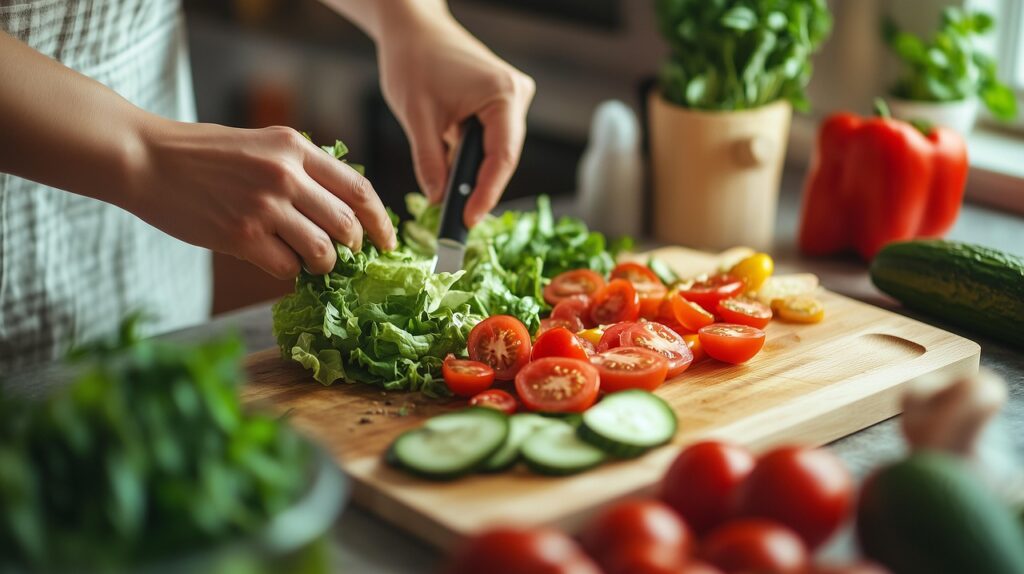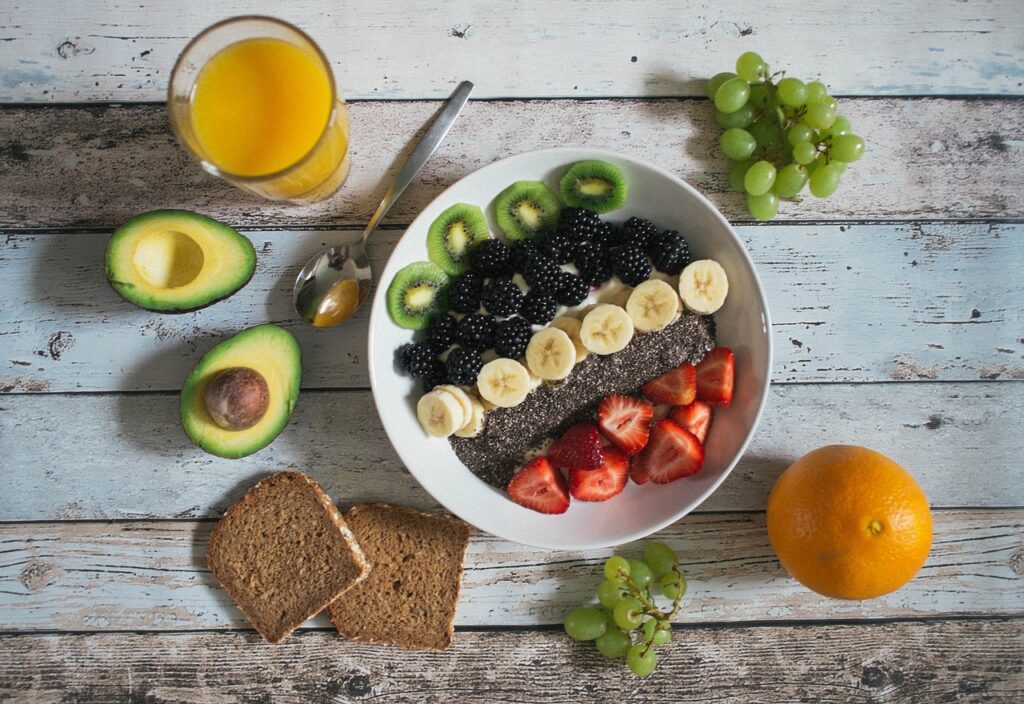
Several weeks ago, I chatted with the girls in my Christian Womanhood class before we started our lesson. Since it was Monday, I asked about the girls’ weekends and shared some things about my own weekend happenings. At one point, I stated that I had done food prep on Saturday.
“Food prep?” one girl repeated as her brow furrowed. “That’s such a mom thing to do . . . although you’re not a mom . . .”
“Yeah . . .” the other girls agreed.
I had to laugh. I may not be a mom or a wife, but I still have to eat. As a single, it is easy to grab a five-dollar meal at a fast-food restaurant after teaching all day instead of cooking. However, eating a steady diet of fast food is not good for me—physically or financially. And so, in the last few months, I have made preparing nutritious food on the weekends a priority.
In the Beginning . . .
In the very first home ever created—the Garden of Eden—I wonder if Adam and Eve ever prepared or cooked food.
God told Adam and Eve that they could eat the fruit from almost every tree in the garden they were tending. I always imagined that Adam and Eve simply plucked apples, peaches, and bananas from the trees and ate them as they walked along. Yet it probably was not long before they got creative, combining fruits into some kind of fruit bowl. Even then, fruit is not the only thing that grows on trees. Did Adam and Eve throw some nuts into that fruit bowl as well?

Did they get even more creative with their daily dishes? Did Eve make syrups or sometimes heat the food for a warm meal? Did Adam and Eve figure out how to make jams, jellies, and raisins?
It seems as though Adam and Eve could have invested a lot of time and effort into preparing healthy, delicious meals—even in paradise.
Tips for Meal Preparation
We may not live in the Garden of Eden, but we still have access to a variety of amazing foods. As I have learned more about what types of food give me the nutrients I need to be energized and healthy, I have become more intentional about finding ways to easily incorporate them into my hectic life. Here are some strategies that have helped me in the last few months.
- Plan ahead. Before going to the grocery store, write down what meals you want to eat that week. Recently, I have planned one or two main dishes that I can eat for lunch and supper throughout the week. For example, beef stew is a hearty meal that easily reheats, and I do not get tired of it too quickly. Next, I check the refrigerator for yogurt and eggs, which I use for breakfast and snacks. Then, I make my list. This helps me buy only the groceries that I need and plan for what I can prep on the weekend.
- Prepare food on the weekend. Chopping vegetables, cutting up meat, seasoning the food, and cooking it all on the same night after working all day is overwhelming for me. So I break food prep into steps. Usually, I chop vegetables and fruit I need for the week on Saturday afternoons. If I buy a package of chicken breasts, I think about how I will need them cut for future meals. Then, I dice some of the chicken, slice some into strips, or slice other breasts in half before freezing them. That way, I do not have to dethaw the meat, then cut it later. I also boil several eggs on the weekend so that I have them for salads or to bake in crescent rolls for breakfast. Seasoning and cooking chicken on the weekend that can be used for salads throughout the week gives me a good go-to meal in the evenings.
- Prioritize meal preparation. Many things demand our time and attention. We work. We attend church. We invest in ministry. We invest in friendships. It is easy to put all these other important elements of life above caring for our own bodies. However, we do have a responsibility to care for the bodies God gave us. Taking care of our physical needs enables us to do the work God calls us to do more effectively. Decide when you are going to do meal preparation. Put it on your schedule. Make it a top priority—not the last priority.
Our Motivation
Prioritizing food preparation—especially when it is only for ourselves—can feel selfish. But it is not selfish if we are prioritizing food preparation for the right reasons. Eating healthy food gives us the energy and ability to continue doing the work God calls us to do.
If we want to be healthy—if we want to use our bodies to faithfully serve the Lord—we must do the hard work of caring for our bodies. When we diligently care for the body God gifts us with, we are honoring Him and His creation.
Next time you do your food prep, embrace it—not as a mom thing to do—but as a Christian thing to do. Remember,
“Whatsoever ye do, do all to the glory of God.” –1 Corinthians 10:31 (KJV)
Share:
Check out more biblical insights and tips about homemaking in my book Opening the Hope Chest: A Single Girl’s Guide to Homemaking.


Great tips! Here’s one that I use: study the grocery ads and plan meals around the foods that are on sale that week.
Great idea! Thanks!